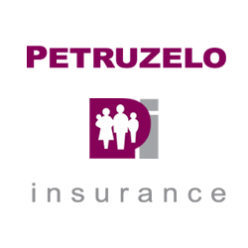
Buying a home is often an enormous learning experience. You may, for the first time, learn about everything from radon to flood zones to mortgage points. When it comes to insurance, there are several types you need to consider: specifically, homeowner’s insurance and mortgage insurance, also known as PMI. But what’s the difference between the two? In this blog, we’ll define the terms and discuss how they differ.
What is Homeowner’s Insurance?
Homeowners insurance is a standard insurance policy required in many states for those purchasing a house, condo or apartment. This type of insurance is designed to protect you as the homeowner in the event of a covered loss, such as a break-in, roof damage, or a fire. For this reason, even if you live in a state where it’s not required, it’s an important step for protecting you and your family from damage and liability.
The amount and type of coverage you will have for your home will depend on many elements: the size and age of the home, its location, the region you live in, the value of the property, and your budget. Depending on the type of coverage you pick, your homeowner’s policy will pay for the repair of your home should damage be incurred. It will also protect you from liability if a visitor is injured on your property and will also often pay for temporary accommodations should your home become unlivable.
The best way to get homeowner’s insurance coverage is to work with a licensed insurance carrier, who can help you build a policy that’s right for you based on your home, your needs, and your budget.
What is PMI?
Private mortgage insurance, or PMI, is an entirely different type of insurance. PMI, unlike homeowner’s insurance, is not designed to protect you. It’s designed to protect your mortgage lender. In many cases, particularly if your down payment is less than 20 percent of the home’s cost, the lender will require PMI so that it is protected if you are unable to make your mortgage payments and your home goes into foreclosure. The lender’s decision about whether to require PMI will be based on a number of factors: how much money you’re putting down, your credit score and history, and the amount and stability of your income.
Private mortgage insurance premiums are generally quoted as a percentage (often between one and two percent) of the cost of your home. While it can be paid upfront, it’s most often included in your monthly mortgage payment. You can either choose your own PMI provider from a private company or have the lender arrange a policy on your behalf. The good news is that PMI, unlike homeowner’s insurance, is not forever: if your credit improves or you reach the 20 percent equity threshold, you can often successfully lobby the lender to drop it.
Consult with a Licensed Insurance Professional
In Connecticut, Petruzelo Insurance offers personal and business policies that fit your needs and protect your home and business. Call us at 866-479-3327 or visit our website for more information.
- Auto Insurance Quote
- Homeowners Insurance
- Antique & Classic Cars
- Motor Homes & RV’s
- Boats & Personal Watercraft
- Long Term Care Insurance
